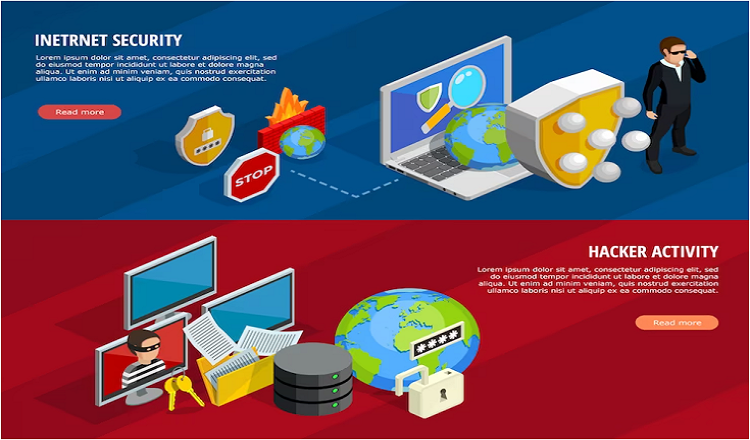The economic impact of cybersecurity and data privacy on businesses and consumers
Cybersecurity and data privacy are crucial problems for both businesses and consumers in the current digital era. The economic impact of cybersecurity and data privacy on businesses and customers cannot be overlooked, especially with the rise of cyberattacks, data breaches, and identity theft.
Cybersecurity is the process of preventing unwanted access, theft, and damage to computer systems and networks. On the other side, data privacy entails safeguarding personal data and making sure that it is not used or shared without the owner’s permission. Data breaches and cyberattacks can endanger personal information and have major financial and reputational repercussions, so these two ideas are closely intertwined.
This article’s goal is to examine the financial effects of data privacy and cybersecurity on organizations and consumers. We’ll talk about the price of data breaches for companies, how cyberattacks affect consumer behavior, and the legal framework for data protection. We will also stress how crucial it is to spend money on cybersecurity precautions and abide by data privacy laws in order to lessen the negative economic effects of these problems. So take a cup of coffee, relax, and let’s explore the realm of data privacy and cybersecurity!
Impact of the Economy on Businesses
It is impossible to overestimate the financial benefits of data privacy and cybersecurity for organizations. Significant expenses, like as legal fees, lost revenue, and reputational harm, can result from data breaches. Businesses can incur astounding costs as a result of data breaches, with the average cost per breach topping millions of dollars. Additionally, cyberattacks and data breaches can lead to lost income since customers may stop doing business with a company as a result of their lack of trust.
Businesses must also take into account the costs of complying with data privacy laws. For small and medium-sized organizations in particular, complying with data privacy laws like the GDPR and CCPA can be difficult and expensive. However, it is crucial to make investments in cybersecurity protections. Businesses can lessen the risk of a data breach and lessen the financial effect of cyberattacks by being proactive in protecting their systems and data.
Impact of the Economy on Consumers
Consumers will be equally impacted financially by data privacy and cybersecurity. For people, identity theft and fraud can have major financial repercussions, including lost funds, ruined credit, and increased debt. Additionally, data breaches may cause customers to lose faith in brands, which may have a big impact on their purchasing decisions and behavior.
Customers may decide to steer clear of companies that have had data breaches or seek different goods or services. If a big number of customers are impacted by the breach, it may significantly impair a company’s bottom line. Additionally, lost productivity and decreased consumer spending may arise from the time and effort needed to address the effects of identity theft or fraud. Therefore, it is essential for companies to prioritize data privacy and cybersecurity in order to guarantee the security and protection of their customers’ personal information.
Regulatory Framework
With new rules and regulations being established to protect consumer data, the regulatory landscape surrounding data privacy is always changing. The General Data Protection Regulation (GDPR) and the California Consumer Privacy Act (CCPA) are two of the most famous laws. These regulations set forth stringent guidelines for companies that acquire and process customer data, including standards for transparency, consent, and data security.
It is impossible to overlook how these restrictions would affect both businesses and customers. To comply with rules, businesses must spend money and time on cybersecurity and data privacy procedures, which can be expensive. Heavy penalties and other legal repercussions may follow noncompliance with these rules. However, these laws provide users more control over their personal information and ensure that it is shielded from theft or unlawful access.
Internet Security Sector
Due to the growing significance of protecting against cyber attacks, the cybersecurity business has seen substantial expansion in recent years. This sector includes a wide range of services and goods, such as threat intelligence, network security, and data encryption. The business is expected to expand over the next few years as demand for cybersecurity experts and services rises.
The cybersecurity sector has a major economic impact since it creates jobs and offers services crucial to shielding consumers and companies from online dangers. Additionally, higher pay and more job prospects have resulted from the rising need for cybersecurity specialists. Additionally, the expansion of the cybersecurity industry has sparked the creation of novel ideas and advancements that go far beyond the confines of the industry itself.
A Case Study
Case studies are a helpful resource for understanding how cybersecurity and data privacy affect firms economically. Cyberattacks and data breaches have a substantial influence on a company’s reputation, revenue, and consumer trust, as shown by examples of firms that have suffered from these events. Data breaches have occurred at organizations like Equifax, Yahoo, and Target, costing those businesses millions of dollars in lost revenue and seriously harming their reputations.
The significance of investing in cybersecurity measures, routine testing and auditing of security systems, and timely and open consumer communication in the event of a breach are just a few lessons learnt from these case studies. Strong password policies, frequent security upgrades, and employee cybersecurity training are all examples of best practices for cybersecurity. These case studies serve as a helpful reminder of how crucial it is to prioritize data privacy and cybersecurity in order to avoid potentially disastrous economic effects.
Conclusion
The economic implications of cybersecurity and data privacy cannot be disregarded in the current digital era. Cyber hazards, such as data breaches and identity theft, pose serious risks to both businesses and consumers. These risks have the potential to have significant negative economic effects, such as lost profits, harm to one’s reputation, and a decline in customer confidence.
Businesses must prioritize cybersecurity safeguards and abide by data privacy laws in order to reduce these risks. Strong cybersecurity measures, such as network security, encryption, and frequent security upgrades, can stop cyber threats and protect against any negative effects on the economy. Businesses that abide by data privacy laws, such as the GDPR and CCPA, can preserve their customers’ privacy by being open about how they gather and use their data.
Looking ahead, it is certain that cybersecurity and data privacy will continue to have a substantial economic impact. However, there are potential remedies in the works, such as greater funding for cybersecurity education and training as well as the creation of new technology and ideas to counter cyber attacks. In the end, businesses must prioritize cybersecurity and data privacy in order to protect their clients and prevent against potential negative effects on the economy.
Read More You May Like:














Post Comment